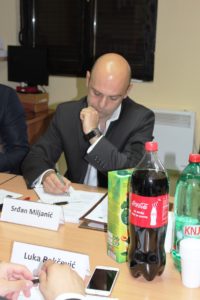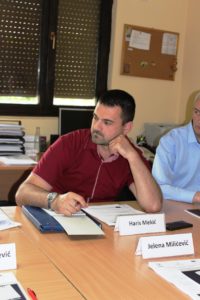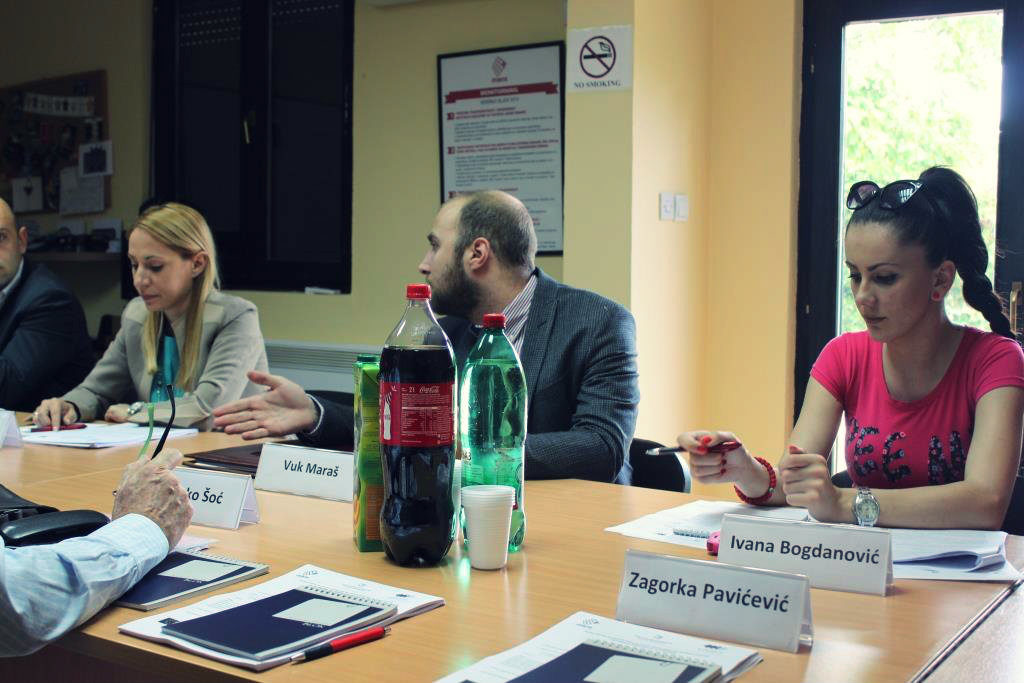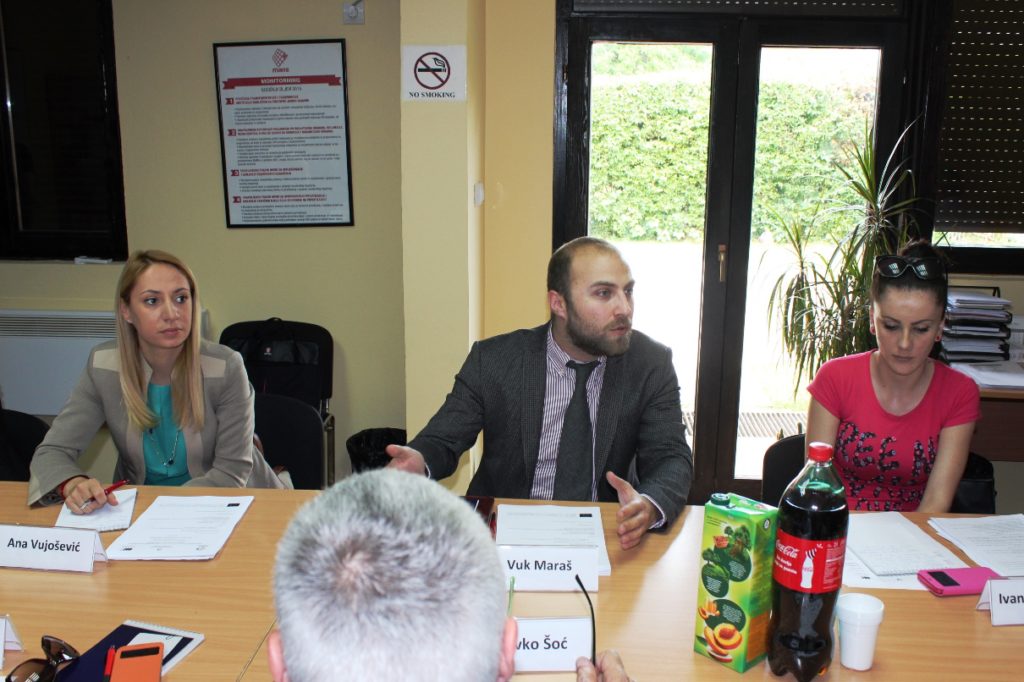Centre for Civic Education (CCE), the Association of Youth with Disabilities of Montenegro (AYDM) and the Network for Affirmation of NGO Sector (MANS) established today the working group that will work on the analysis of the by-laws of the State Election Commission and the drafting of proposals for improvement, which is one in a series of preconditions for free and fair elections in Montenegro.
The Working Group is composed of representatives of majority of the parliamentary political subjects in Montenegro and non-governmental organizations dealing with election issues from different angles. At the constituent meeting were present: Srdjan Miljanic (DPS), Spasoje Kovacevic and Sladjana Zivkovic (Socialist People’s Party), Miodrag Radovic (Social Democratic Party), Aleksandar Jovicevic (Social Democrats Montenegro), Zagorka Pavicevic and Jelena Milicevic (Positive Montenegro) Haris Mekic (Bosniak party), Luka Rakcevic (United reformist action), Zdravko Soc (Liberal party), Hasim Resulbegu (FORCA), Marash Dedvukaj (Albanian alternative) and Milica Kovacevic (Center for Democratic Transition), and on behalf of the organizer Ana Vujosevic from CCE, Ivana Bogdanovic from AYDM i Vuk Maras from MANS. In the Working Group also participate Savo Sofranac (DEMOS), Vladimir Jokic (Democratic Montenegro) and Dubravka Popovic (Centre for Monitoring and Research), which were, due to objective reasons, prevented to attend the constituent meeting.
The aim of the Working group is to look at all the existing by-laws of the State Election Commission which in details provides the various aspects of electoral activities, and to offer solutions for improvement, in order to meet the forthcoming parliamentary election scheduled for October 2016.
As the organizers of the Working Group repeatedly cited so far, the existing by-laws have many ambiguities, such as an example regarding the possibility to vote by those people who do not have photo in the system of MI in closing the electoral roll or insufficiently specified use of the right to a secret voting for persons with disabilities, as well as the obligations of the accessibility of polling stations. On the other hand, in some by-laws are not precisely enough defined certain legal proceedings, primarily the procedure for deciding on complaints by election commissions and the presentation of evidence in these proceedings, as well as the determination of cases of conflict of interest of members of the election.

 Coverage of the Working Group refers to the following by-laws: Rules of Procedure of committees, Rules on voting by letter, Rules on the determination and organization of polling stations and the measures to ensure the secrecy of voting, the Code of Ethics of the election and the Rules of the State Election Commission, and if by members of the Working Group is there such a demand, the coverage can be extended to all other by-laws that are the responsibility of the State election Commission.
Coverage of the Working Group refers to the following by-laws: Rules of Procedure of committees, Rules on voting by letter, Rules on the determination and organization of polling stations and the measures to ensure the secrecy of voting, the Code of Ethics of the election and the Rules of the State Election Commission, and if by members of the Working Group is there such a demand, the coverage can be extended to all other by-laws that are the responsibility of the State election Commission.
It is planned that the Working Group conduct an analysis of by-laws and develop recommendations for improvement until July 7th, 2016, after which recommendations will be consulted with the interested public and addressed to the State Election Commission for further action.
The constitution and the work of the Working Group is part of the project “Fair elections free of corruption” funded by the European Union.
With respect,
CCE
AYDM
MANS





